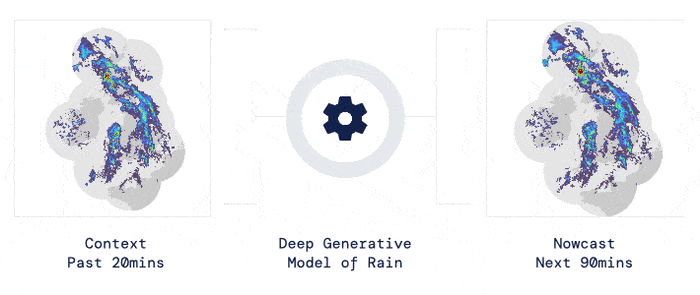DeepMind and UK’s Met Office use AI to improve weather forecasts
Artificial intelligence improves the accuracy of short-term weather forecasts and in particular the prediction of storms and heavy rain, according to research conducted by the British Meteorological Office and DeepMind, the London-based AI company.
Their project focused on “new broadcast” – locating the time, location, and intensity of high-resolution precipitation up to two hours ahead – which is not well handled by the supercomputer models used to predict larger-scale weather over the next day. or week.
This is crucial for applications ranging from the warning of imminent flood risk to letting organizers of outdoor events know when a downpour comes.
The results, published in Nature, show that an AI-based approach called “deep generative modeling” or DGM surpassed other nowcasting methods over a wide range of measures. It was ranked first for accuracy and utility by 89 percent of a panel of 56 professional meteorologists dazzled by the source of the predictions.
“Improving the accuracy of short-term forecasts is an incredibly important effort,” said Niall Robinson, Head of Partnerships and Product Innovation at Met Office, the UK’s National Weather and Climate Service.
“Extreme weather has catastrophic consequences, including loss of life, and as the effects of climate change suggest, these types of events will become more common,” he added. “This research shows that the potential AI can offer as a powerful tool to improve our short-term forecasts and our understanding of how our weather patterns evolve.”
DeepMind and Met Office researchers trained DGM to predict the evolution of precipitation (rain and snow) by analyzing three-year British radar maps. These show how much rain falls every five minutes at 1 km spatial resolution.






Post a Comment